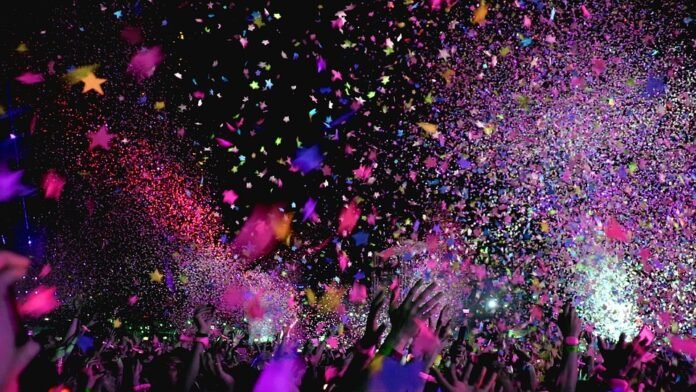Of course. Here is an article exploring the current state and future of the superhero genre.
Is This the End of the Superhero Era?
After a decade of unquestioned dominance, the cape feels a little frayed. Are we witnessing a final act or a necessary evolution?
For a solid decade, the superhero movie was more than a genre; it was a cultural monolith. The thrumming Marvel logo was a Pavlovian bell for packed theaters, and the release of a film like Avengers: Endgame was a global event that felt less like a movie premiere and more like a shared cultural pilgrimage. We were all in on the joke, we knew the lore, and the box office receipts soared into the billions as a matter of course.
Then, something shifted.
The post-Endgame landscape has been littered with creative misfires and commercial disappointments. Films like Ant-Man and the Wasp: Quantumania, The Flash, and The Marvels landed with a thud, failing to ignite the passion—or the ticket sales—of their predecessors. The once-impenetrable armor of the superhero blockbuster now shows visible cracks. This has led to the question whispered in studio boardrooms and debated in online forums: Is this the end of the superhero era?
The answer, like any good comic book plot, is complicated. It’s not a simple death, but it is undoubtedly a transformation.
The Case for the Decline: Superhero Fatigue is Real
The arguments for the genre’s demise are compelling. Chief among them is the concept of “superhero fatigue.” What was once a treat twice a year has become a firehose of content. With multiple films and a dozen streaming series annually, all demanding knowledge of intricate, branching timelines, keeping up has started to feel like homework. The Marvel Cinematic Universe, once a masterclass in interconnected storytelling, has become a sprawling, intimidating multiverse that even dedicated fans struggle to navigate.
Compounding this is the “Endgame Problem.” The Infinity Saga provided a satisfying, definitive conclusion for a core group of beloved characters. It was the “Who shot J.R.?” for a generation, a finale built over 22 films. How do you follow that? The subsequent phases have felt like a scattered epilogue, lacking a clear villain, a central driving force, or the same emotional stakes. The magic of watching Tony Stark and Steve Rogers build a universe has been replaced by the more cynical business of simply servicing a content machine.
Finally, audiences have shown they are hungry for something new. The “Barbenheimer” phenomenon of 2023 was a stark reminder that original ideas, auteur-driven visions, and event films outside the realm of capes and cowls can still captivate the world. When a hot pink comedy and a three-hour historical drama become the cinematic event of the year, it’s a clear signal that the public’s appetite is diversifying.
The Counter-Argument: A Metamorphosis, Not an End
To declare the superhero genre dead, however, is to ignore its incredible resilience and capacity for reinvention. It’s more accurate to say that the era of the guaranteed, formulaic blockbuster is over. Quality, vision, and novelty now matter more than ever.
Look at the recent successes. Spider-Man: Across the Spider-Verse was a visual masterpiece, pushing the boundaries of animation and storytelling. Guardians of the Galaxy Vol. 3 succeeded not because of its cosmic stakes, but because it was a deeply emotional, character-driven finale from a director with a unique voice. The Batman stripped away the interconnected universe to deliver a gritty, standalone detective noir. On television, subversive hits like The Boys and Invincible deconstruct the genre with brutal glee, proving there are still fresh, mature stories to tell.
These successes share a common thread: they are passion projects, not just products. They prioritize a unique tone, artistic innovation, and compelling character arcs over setting up the next five spin-offs.
Furthermore, these characters—Batman, Superman, Spider-Man—are modern mythology. They have endured for over 80 years in comics, radio, television, and film. Like the Western or the gangster movie, the superhero genre won’t simply vanish. It will ebb and flow, adapting its form to reflect the anxieties and aspirations of the time. The upcoming DC Universe, helmed by James Gunn, represents a conscious effort to reboot and refocus, betting that a fresh, cohesive vision can reignite audience passion.
The Dawn of a New Age
So, is this the end? No. But it is the end of an era of easy dominance. The monoculture created by the MCU’s Infinity Saga has fractured, and in its place, a multiverse of possibilities is emerging.
The future of the superhero genre won’t be defined by a single, sprawling narrative, but by a diverse portfolio of styles. We will see more standalone Elseworlds tales, more artistically ambitious animated features, more gritty R-rated satires, and yes, the occasional epic team-up. The lazy, formulaic entries will continue to fail, as they should.
The gods of our modern myths aren’t flying away. They are simply being forced, after a long period of complacency, to learn how to fly in new and more interesting ways. For audiences tired of the same old story, that should be the best news of all.

